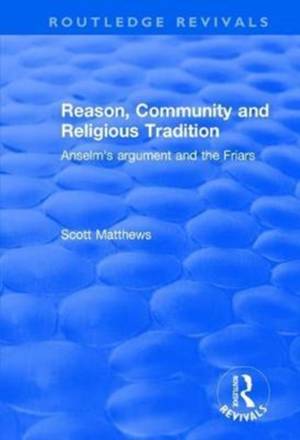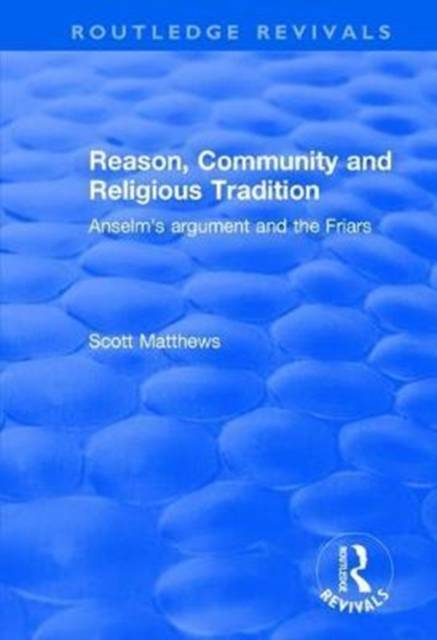
- Afhalen na 1 uur in een winkel met voorraad
- Gratis thuislevering in België vanaf € 30
- Ruim aanbod met 7 miljoen producten
- Afhalen na 1 uur in een winkel met voorraad
- Gratis thuislevering in België vanaf € 30
- Ruim aanbod met 7 miljoen producten
Zoeken
€ 43,45
+ 86 punten
Uitvoering
Omschrijving
This title was first published in 2001: Reason, Community and Religious Tradition examines key questions about the relationship of rationality to its contexts by tracing the early history of the so-called 'ontological' argument. The book follows Anselm's Proslogion from its origins in the private, devotional context of an eleventh-century monastery to its reception in the public and adversarial contexts of the friars' schools in the thirteenth century. Using unpublished manuscript evidence from the Dominican and Franciscan schools at Oxford, Paris and Bologna in the thirteenth century, Matthews argues that the debate over Anselm's argument embodied the broader religious differences between the Franciscan and Dominican communities. By comparing the most famous figures of the period with their lesser-known contemporaries, Matthews argues that the Friars thought as communities and developed as traditions as they developed their arguments. This book will interest anyone concerned with the nature of rationality, and its relationship to communities and traditions, and what this entails for rational debate across cultural divides. In particular, it offers a fresh perspective on traditional approaches to the rationality of religion and religious belief.
Specificaties
Betrokkenen
- Auteur(s):
- Uitgeverij:
Inhoud
- Aantal bladzijden:
- 248
- Taal:
- Engels
- Reeks:
Eigenschappen
- Productcode (EAN):
- 9781138702561
- Verschijningsdatum:
- 14/09/2017
- Uitvoering:
- Hardcover
- Formaat:
- Genaaid
- Afmetingen:
- 148 mm x 216 mm
- Gewicht:
- 259 g

Alleen bij Standaard Boekhandel
+ 86 punten op je klantenkaart van Standaard Boekhandel
Beoordelingen
We publiceren alleen reviews die voldoen aan de voorwaarden voor reviews. Bekijk onze voorwaarden voor reviews.











